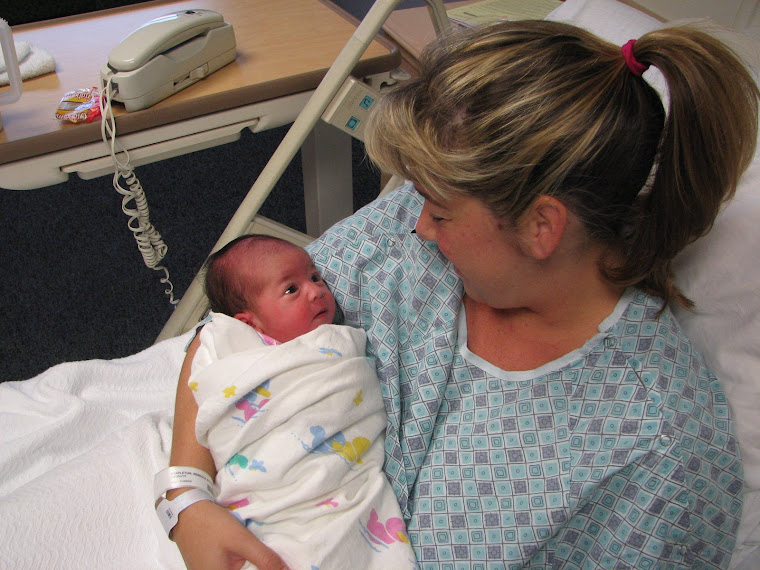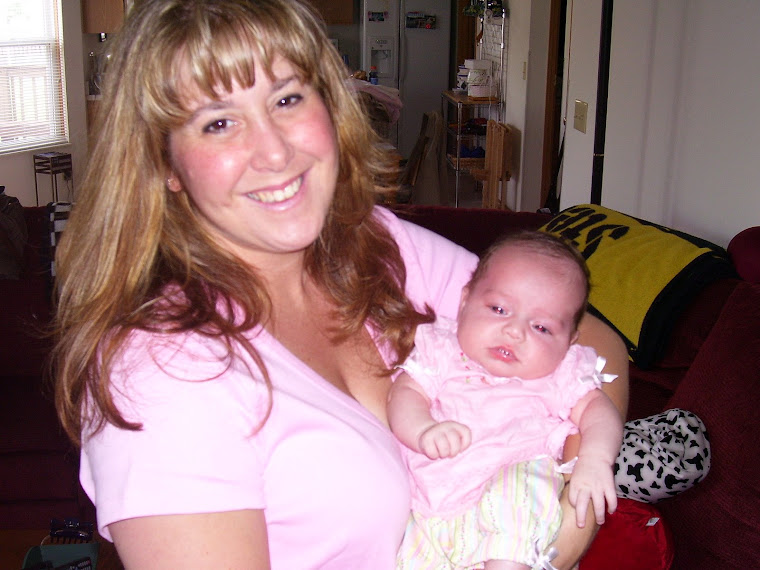Here are some info I found on the internet covering lots of different ttpes of myths and questions. One of the most infuriating things I delt with were people telling me "to relax, it will happen".... someone who has said that has never been where an infertility person has been. During treatment especially.... you can think of NOTHING else. I hope this also helps people become more aware of the sensitivity you should use when dealing with a friend who is suffering through infertility.
Infertility is primarily caused by female problems.
Studies show that about 40% of infertility cases are caused by female factors, 40% by male factors and 20% by a combination of both.
Ovulation occurs on Day 14 of a woman's cycle.
That would make birth control, and conception, very easy if it were true. Couples could either avoid intercourse on Day 14 to avoid pregnancy, or have intercourse to become pregnant.
A normal menstrual cycle lasts 28 days.
The normal range for a woman's menstrual cycle is actually anywhere between 24 to 36 days in length.
Worrying about a late period only makes it later.
Stress cannot delay your menstrual period, however it can delay ovulation. The number of days in your luteal phase (time between ovulation and your period) typically will remain constant with each cycle.
A woman can get pregnant only on one day during each cycle.
Although a woman's egg is only viable for 12 to 24 hours, she can actually get pregnant from an act of intercourse that occurs anytime from about five days prior to ovulation to as much as two days after, for a total of about seven possible days to get pregnant.
A woman should wait a minimum of three months after she stops taking birth control pills before trying to conceive.
Birth control pills work by preventing a woman from ovulating through increased hormone levels. The hormone levels start to return to normal almost immediately once you quit taking them and you should begin to ovulate with the very next cycle.
Stress can cause infertility.
Stress does not prevent conception, however, it can delay ovulation by suppressing the hormones needed for it to occur.
It's all in your mind - just relax or take a vacation. Then you'll get pregnant! (This was the one that always bothered me the most!)
Infertility is a disease or condition of the reproductive system. Although infertility can result in stress, stress cannot cause infertility. Luckily, improved medical techniques have made it easier to diagnose and treat infertility problems.
The egg is fertilized within the uterus.
Implantation usually occurs in the uterus, but conception actually occurs in the outer third of the fallopian tubes, not in the uterus.
Women stop producing eggs at menopause.
Women are born with over 400,000 eggs, but have nowhere near that many menstrual cycles in their lives. Once a woman reaches menopause, her body stops responding to the hormones that cause the eggs to mature in the ovary and be released.
Wearing boxer shorts and taking cold showers makes men more fertile.
While increased scrotal heat from athletic supporters, tight-fitting underwear and hot tubs can reduce a man's sperm count, there are no proven benefits of keeping the area cold.
If a woman takes fertility drugs to help conceive, she'll end up having twins or triplets.
Although fertility drugs can increase the chances of having a multiple pregnancy, the majority of women taking them have single births.
Ovulation occurs on the day of the drop or the day of the rise in your BBT chart.
Actually, the exact day of ovulation cannot be determined by the basal body temperature. By the time the temperature has risen, ovulation has already occurred and since the egg can live for 12-24 hours, the temperature alone is not a good indicator of when you actually ovulated.
Vaginal secretions indicate that you have an infection.
Vaginal secretions are natural and healthy and once a woman understands what it is and when to expect it, she will realize that it is a sign of fertility and not an infectious discharge in need of treatment or douching.
If a man is sexually virile, he will have a normal sperm count.
In reality, men with normal sex drives may have no sperm at all and vice versa as there is no correlation between virility and fertility.
Sperm can only live for several hours.
In fertile quality cervical fluid, sperm can actually survive for up to five days in a woman's reproductive system.
Myth: It's easy to get pregnant.
For many people, it's not easy. Yet, friends and family often still put undue pressure on couples with the "what's wrong with you?" syndrome.
Myth: Having sex every day will increase our chances of conceiving.
The truth is that timing sex during the most fertile days of a woman's monthly cycle will increase your chances — not how many times you have sex. Generally, the best time to try to conceive is during the 11 - 17th days of a woman's menstrual cycle based on a 28-day cycle. Since a man's sperm can live for 48 - 72 hours in a woman's reproductive tract, intercourse every other day during this period is recommended. A study found no difference in pregnancy rates between couples that had sex daily and those who had sex every other day.[1]
Myth: A woman's menstrual cycle begins when she starts spotting.
Close, but wrong. If you're trying to time intercourse, it's critical to identify the first day of your reproductive cycle. Start counting on the first day of normal bleeding or full flow, not when spotting begins. Being off by just a day or two can make a big difference.
Myth: A woman can't get pregnant if she doesn't have an orgasm.
Getting pregnant has nothing to do with a woman having an orgasm. Conception occurs when a man's sperm fertilizes a woman's egg.
Myth: I can wait until I'm 40 to conceive.
When you choose to start a family is up to you. But as you make your decision, you should be aware of some basic fertility facts. A man's fertility drops after age 35.[2] A healthy woman at age thirty has about a 20% chance per month of conceiving. By the time she reaches forty, her chances drop to about 5% per month.[3]
Getting pregnant — at any age — is not an automatic. And as you get older, it may become increasingly difficult to conceive - despite all the stories you've heard in the media. Infertility is defined as the inability to conceive after regular, unprotected intercourse after 12 months (or 6 months if a woman is over 35). It's important to talk to a healthcare provider whenever you're concerned about your ability to conceive. Some people talk with their Primary Care Physician, others with an OB/GYN, and some go directly to a Fertility Specialist, also called a Reproductive Endocrinologist (RE). Find a Fertility Specialist, Reproductive Endocrinologist (RE), in your area.
Myth: We've already had one child, so conceiving again will be easy.
Perhaps, but it's no guarantee. Many Americans experience secondary infertility, or difficulty conceiving a second or subsequent child. This problem is often caused by age-related factors.
Subscribe to:
Post Comments (Atom)








No comments:
Post a Comment